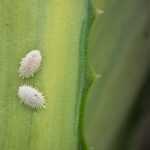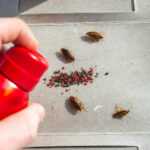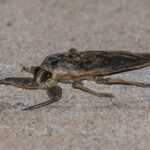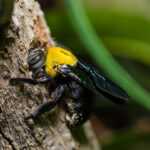We love spring rain to green our grass, but ants don’t find it quite so nice. Think that scene in A Bug’s Life where heavy rain sends panicked ants scattering for shelter—If you haven’t seen the movie, you just might need a 2-year-old to open your eyes to the wonders of education by Disney, Dream Works, and PBS Kids—worked for us.
As you probably know, ants build a highly sophisticated network of tunnels underground. Most of the time, they live pretty comfortable lives here in Southwest Idaho. But when spring rains come it can flood their homes and drive them up out of the ground. If the rains are really bad, the entire colony might need to relocate. They will look for areas unaffected by flooding—places ant FEMA won’t require the colony to carry flood insurance. Prime ant real estate is close to your home—and if they can find an unsealed crack—inside your home.
There is nothing worse than coming home to a trail of ants trooping through your kitchen or bathroom. And “ick” alert…ants are not that clean. They don’t go around the gross stuff. They walk over dead and decaying animals, through feces, and other outdoor materials you don’t want indoors. When they come into your home and march over your kitchen counters, they may be trailing behind remnants of these materials. During heavy rains, ants seek shelter and invade homes in search of a dry and safe environment.
Common Ant Species That Invade Homes
Ants are incredibly diverse, with over 12,000 known species worldwide. However, only a few species are commonly found invading homes after heavy rains. Some of the most common ant species that invade homes include:
- Carpenter Ants: These ants are the carpenters of the insect world, but not in a good way. Known for their ability to tunnel into wood, carpenter ants can create complex networks of nests within your home’s structure. They are particularly attracted to homes with wood debris, and their tunneling can cause significant damage over time. If you notice sawdust-like material around your home, it might be a sign of carpenter ants setting up shop.
- Fire Ants: Fire ants are the tiny terrors of the ant world, notorious for their painful stings. After heavy rains, they often seek higher ground, which can lead them straight into your home. These ants can invade through cracks and crevices, looking for shelter and food. If you see small, reddish ants and experience a sting, you’re likely dealing with fire ants.
- Argentine Ants: Highly social and incredibly persistent, Argentine ants can form massive colonies that seem to be everywhere at once. They are particularly attracted to sweet substances and can invade homes through even the smallest cracks and crevices. If you find a trail of tiny ants leading to your sugar jar, you might be dealing with Argentine ants.
- Odorous House Ants: These ants are known for their distinctive rotten coconut-like odor when crushed. Often found in homes after heavy rains, odorous house ants are attracted to food and moisture. They can contaminate kitchen and bathroom areas, making them a particularly unwelcome guest. If you notice a strange smell and see small, dark ants, you’re likely dealing with odorous house ants.
Identifying and Preventing Ant Infestation
Identifying and preventing ant infestations requires a combination of knowledge and proactive measures. Here are some tips to help you identify and prevent ant infestations:
- Look for Signs of Ants: Ants leave behind trails of pheromones to attract more ants to the area. Look for small piles of dirt or debris, which can indicate ant activity. If you see a steady stream of ants marching in a line, you’ve found their trail.
- Seal Entry Points: Ants can enter homes through even the smallest cracks and crevices. Take the time to seal any gaps around windows, doors, and pipes to prevent ants from entering. A little caulk can go a long way in keeping these tiny invaders out.
- Keep Your Home Clean: Ants are always on the lookout for food and moisture. Keep your home clean and free of clutter, and store food in sealed containers. Regularly clean kitchen surfaces, sweep floors, and take out the trash to make your home less attractive to ants.
- Remove Standing Water: Ants need water to survive, so removing any standing water around your home is crucial. Check for leaks, fix dripping faucets, and ensure pet water dishes are emptied regularly. Even clogged drains can be a water source for ants.
- Use Natural Deterrents: Certain herbs and spices, such as cinnamon and cayenne pepper, can repel ants. Place these substances around entry points to deter ants naturally. Not only will your home smell great, but it will also be less inviting to ants.
By following these tips, you can help prevent ant infestations and reduce the risk of ants invading your home after heavy rains. However, if you do experience an ant infestation, it’s essential to contact a professional ant exterminator to ensure effective treatment and prevention of future infestations.
How To Get Rid of Ants After the Rain
Even if it’s just an ant or two you find wandering about…it usually isn’t just one. Ants travel, work, and live in large colonies. So if you find one, you know there are others lurking about somewhere. Understanding what attracts ants is crucial for effective removal.
Ant invasions are one of the most common calls we take at PURCOR, especially after the rain, as homeowners often face various pest issues. When you find a trail, you can temporarily disrupt it with a mild solution of vinegar and water. However, it will likely require some professional help. If your home is infested by ants, call PURCOR to discuss your personal ant solution.
How To Prevent Ants From Coming Into Your Home
Getting rid of ants after it rains can send you seeking help. But there are steps you can take to prevent them from coming in—or from coming back.
Seal Cracks and Gaps
Like most bugs, ants will find gaps around doors and windows, cracks in your home’s foundation, tears in screens, and openings around electrical outlets or plumbing. It’s always a good idea to check these areas each spring, and seal any new openings that winter, or time, may have caused. If you have a trail of ants that has already made its way in, follow it and make sure you caulk or repair their entrance.
Check for Hitch-Hikers
When you bring in something from outdoors, always check for hitch-hiking insects. As we start to do our spring clean-up and planting, we bring in things like boxes from the garage, fresh-cut flowers, potted plants, and supplies or purchases that may carry hidden ants (or other pests). Give things that have been outdoors for any period of time a good once-over before bringing them indoors.
Don’t Give Ants a Free Lunch
We know that ants are seeking one of three things: food, shelter, and water. So don’t make it easy on them. It can be frustrating to keep up with all that might attract ants inside—we know, that adorable 2-year-old referenced earlier loves to leave sticky ant-treats in secret places. But taking these measures can help:
- Check your kitchen and bathroom for water leaks or condensation
- Keep your home clean and free of clutter
- Clean all kitchen surfaces regularly, especially after meals
- Wash dishes daily—dirty dishes are a clear ant-vitation
- Store food in tightly sealed containers—never leave uncovered food out
- Vacuum, sweep, and mop floors regularly
- Routinely clean out your microwave, oven, and other appliances
- Keep garbage and recycling closed and remove from the home daily
Apply a general insect barrier: PURCOR offers a general pest control barrier that is an important step in preventing ants from entering your home.
When Prevention Fails
As home and business owners we work hard to keep things clean and comfortable. But sometimes our best efforts fail—especially when flooding drives them out. These pest issues can be particularly challenging when it comes to keeping ants out. To get rid of ants after the rain or any other time, PURCOR can help.
Our technicians use pet and child friendly sprays for immediate relief from ants. But sprays are only a temporary solution because it doesn’t impact the nest. For your best long-term solution, we also leave (and teach you how to use) an Ant Gel Bait.
Baits get to the heart of the problem. Worker ants feed and take the bait back to share with the rest of the colony. It is important to continue using baits even after spraying because baits are delivered into areas our insecticides can’t reach.
Contact PURCOR for Your Professional Ant Exterminator Solution
Ants do serve an important purpose in our planet’s ecosystem. Left alone in nature they have many benefits. However, when they come inside they can be a big problem for home and business owners.
The PURCOR Pest Solutions specialists provide effective ant solutions for your home or business. And we help you take steps to prevent them from coming back. Call PURCOR today for your personal ant treatment.
"*" indicates required fields
"*" indicates required fields




